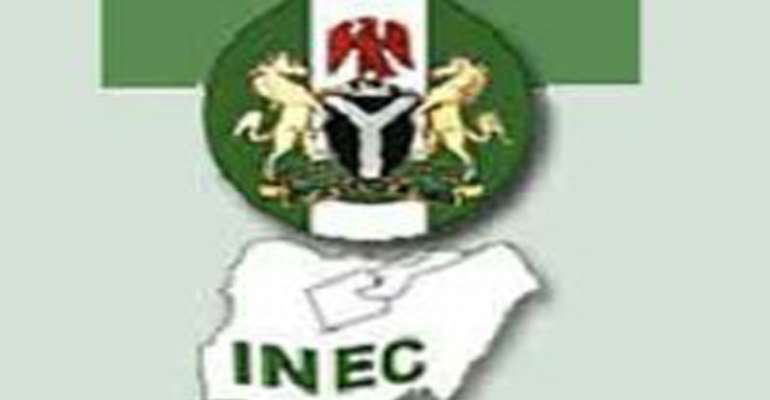Resolving INEC's challenges with PVCs – The Sun

The admission by the Independent National Electoral Commission (INEC) that only 38,774,391 of the 66,833,476 registered voters have collected their Permanent Voter Cards (PVCs) is a timely reminder of the challenge of the coming general elections. The number of cards distributed, less than one month to the much-anticipated polls, amount to only 58 per cent of the number of eligible voters INEC registered.
This is, indeed, a danger signal. However, INEC has assured Nigerians that it will do everything within its powers to distribute the outstanding, yet-to-be-collected PVCs by the end of January.
Considering the lacklustre handling of the distribution of the PVCs so far, and the numerous complaints trailing the exercise, it is difficult to share the electoral agency's optimism that all the outstanding cards would be distributed before the end of this month.
Even more worrisome is the fact that the total number of registered voters for the coming elections is lower than the over 70 million registered for the 2011 elections four years ago. With the Continuous Voter Registration (CVR) exercise and more youths attaining the eligibility age of 18, there should ordinarily be an increase in the number of registered voters over the 2011 figure, instead of this decrease to 68.8 million.
Nevertheless, it is inexcusable that despite the four years between the 2011 and 2015 elections, INEC did not take advantage of the long period to distribute the PVCs to voters. Instead, we have a situation in which the distribution exercise is now being rushed, which lays INEC's preparations and readiness to conduct a credible exercise open to questions.
It is in realisation of the challenge INEC faces in the distribution of PVCs, its insistence that the cards are mandatory for participation in the forthcoming elections and the fear that many Nigerians may be disenfranchised, that the House of Representatives recently passed a resolution that INEC should allow eligible voters who have the Temporary Voter Cards (TVCs) to participate in the elections. This is apparently to improve voter participation in the elections and reduce the number of potential voters that would be inadvertently disenfranchised.
INEC's immediate response to the House's resolution has been at best diplomatic, even if the body language of its leadership suggests an insistence on the PVC. The same inconsistency has been noticed on the issue of whether those in the insurgency ravaged North-east would participate in the elections.
Less than one month to the polls, we would have expected INEC to be clear on what is possible or not, and have generally firmed up its preparations and logistics. The experience of the first day of the 2011 general elections, when INEC had to cancel the exercise midway, is still fresh in the country. No one who wishes this nation well will want a recurrence of that unfortunate incident.
The expectation of Nigerians is that INEC would have learnt necessary lessons from the dress rehearsals of the Anambra, Edo, Ekiti and Osun gubernatorial elections to deliver seamless elections next month. We hope the electoral umpire will not let the nation down.
So, what can the agency do to redress this troubling situation? First, all efforts must be made to get the owners of the over 30 million yet-to-be distributed PVCs to collect them. To achieve this, INEC says it has increased the distribution centres from INEC's desks at the local government headquarters to the various wards, especially in states where the collection rate has been poor.
Commendable as this gesture may appear, the truth is that INEC has not been able to fine-tune its operations. There are far too many genuine complaints of tardiness in its services. It is either the INEC officials are unavailable at supposedly designated seats, or the PVC collection process is too slow to benefit an appreciable number. But, the exercise must go on until registered voters collect their cards.
Second, it has been suggested that INEC should allow those who have the temporary cards to vote. The argument of the agency is that it will roll back the gain from the recent upgrade, as it would mean allowing the over four million voters detected and expunged from the register for double registration to benefit from the illegality.
But, what of the potentially huge percentage of eligible voters that would be otherwise disenfranchised through no apparent fault of theirs as a result of the insistence on the possession of the PVC as the only instrument for participation?
Another reason INEC gave for rejecting any other voting instrument apart from the PVC is that the card reader has been designed to accept it as a check on many known electoral malpractices. Valid as this argument is, we worry about how this card reader is supposed to work. Will it require power to function, knowing our challenge in that regard? Has INEC tested the new technology sufficiently as some of the card readers are reportedly still being expected on the eve of the elections?
These are questions for the electoral umpire and the quicker it finds acceptable answers to them, the better for all stakeholders in the Nigerian electoral project. We cannot afford to bungle these all-important elections.
